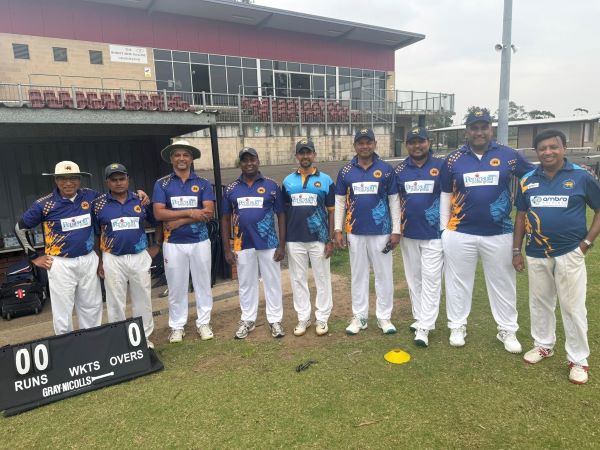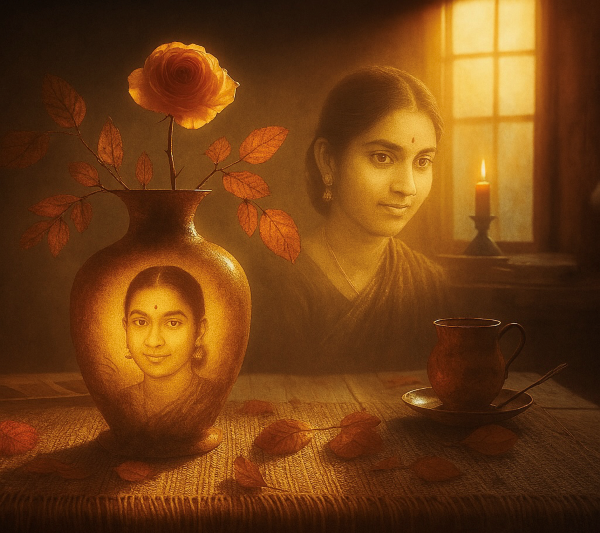ALL ABOUT VITAMINS, MINERALS AND SUPPLEMENTS
by Josephian Health Writer
In general the way to get crucial vitamins and minerals is through healthy foods, so for a completely well-nourished person, supplements may be a waste of money. But for people over age 50, even the best diet may not provide enough of some important nutrients.
Use this information to explore details about the Vitamins, Minerals and Supplements that are most important and specially as you grow older for people over 50.
Supplements may cause side effects. If you have certain diseases, such as cancer or diabetes, your body may have special nutritional needs. Be sure to talk to your doctor about the vitamins and supplements you take.
[1] Vitamins
1.1 Vitamin A
1.2 Vitamin B1 (thiamin)
1.3 Vitamin B2 (riboflavin)
1.4 Vitamin B3 (niacin)
1.5 Vitamin B6 (pyridoxine)
1.6 Vitamin B12
1.7 Vitamin C
1.8 Vitamin D
1.9 Vitamin E
1.10 Folic acid
1.11 Vitamin K
[2] MINERALS
2.1 Calcium
2.2 Chromium
2.3 IODINE
2.4 IRON
2.5 Magnesium
2.6 Potassium
2.7 Selenium
2.8 Zinc
[3] Supplements
3.1 Omega-3 fatty acids
3.2 Echinacea
3.3 Ginkgo
3.4 Ginseng
[1] Vitamins
Vitamin A
How much?
Men: 900 mcg
Women: 700 mcg
Why you need it:
Promotes good vision; helps keep immune system healthy.
Good to know:
In supplements, look for vitamin A as beta carotene, not as retinol or retinoic acid, which increases the risk of bone fracture.
Food sources:
Dairy products, fish, darkly colored fruits and vegetables.
Vitamin B1 (thiamin)
How much?
Men: 1.2 mg
Women: 1.1 mg
Why you need it:
Necessary for healthy nerve and brain cells; helps convert food to energy.
Good to know:
Antacids and some diuretics may lower thiamin levels by decreasing absorption and increasing urinary secretion.
Food sources:
Liver, whole grains, enriched breads and cereals.
Vitamin B2 (riboflavin)
How much?
Men: 1.3 mg
Women: 1.1 mg
Why you need it: Important for red blood cell production; helps convert food to energy.
Good to know: Older men and women may be especially susceptible to riboflavin deficiency, which can cause cracking or sores at the corners of the mouth, skin irritation or weakness.
Food sources: milk, eggs, fortified bread products and cereals.
Vitamin B3 (niacin)
How much?
Men: 16 mg
Women: 14 mg
Why you need it:
Necessary for proper functioning of the digestive system, skin and nerves; helps convert food to energy.
Good to know:
Can cause skin flushing; may be prescribed to treat high cholesterol but should be used only under a doctor’s care because of potentially severe side effects.
Food sources:
Meat, fish, poultry, eggs.
Vitamin B6 (pyridoxine)
How much?
Men: 1.7 mg
Women: 1.5 mg
Why you need it: Aids in the formation of red blood cells; strengthens the immune system.
Good to know: Too high doses of supplements may cause nerve damage, numbness and trouble walking.
Food sources: Beans, nuts, eggs, whole grains.
Vitamin B12
How much?
Men and women: 2.4 mcg
Why you need it: Essential for keeping nerves and red blood cells healthy.
Good to know: As many as a third of people over 50 do not absorb enough B12 from diet alone; inadequate absorption may lead to neurological and balance problems.
Food sources: Fish, shellfish, meat, dairy products.
Vitamin C
How much?
Men: 90 mg
Women: 75 mg
(Smokers should add an extra 35 mg)
Why you need it:
Important for wound healing; boosts immune system; required for growth and repair of tissues in all parts of body.
Good to know:
No studies confirm vitamin C prevents colds although it may shorten the
length of a cold; excessive amounts may lead to upset stomach and diarrhea.
Food sources:
Citrus fruits, tomatoes, kiwi, strawberries.
Vitamin D
How much?
Ages 51-70: 400 IU (10 mcg)
Age 71+: 600 IU (15 mcg)
Why you need it: Helps the body absorb calcium; may protect against heart disease, cancer, diabetes and several autoimmune diseases.
Good to know: The current recommendation is under review and may soon increase substantially.
Food sources: Sun exposure provides the body’s main supply of vitamin D; fatty fish, fortified milk and juices also contribute.
Vitamin E
How much?
Men and women: 15 mg
Why you need it: Helps protect cells from damage; may reduce the risk of developing cancer, heart disease and other chronic diseases, but further research is needed.
Good to know: If you take a blood thinner, talk to your doctor before taking supplements; vitamin E increases bleeding risk.
Food sources: Vegetable oils, nuts, fruits, vegetables.
Folic acid
How much?
Men and women:
400 mcg
Why you need it: This B vitamin helps form red blood cells and produce DNA.
Good to know: High levels may mask vitamin B12 deficiency, especially in older adults.Recent research, suggests that for women, folic acid along with vitamins B6 and B12 may reduce the risk of developing age-related macular degeneration.
Food sources: Enriched cereals, whole-grain breads, dark, leafy vegetables.
Vitamin K
How much?
Men: 120 mcg
Women: 90 mcg
Why you need it: Helps blood clot properly and helps maintain strong bones in older men and women.
Good to know: Can dilute the effect of blood thinners, so talk to your doctor if you take Coumadin (warfarin) or other blood thinners.
Food sources: Plant oils, green vegetables, cabbage, cauliflower.
[2] MINERALS
Calcium
How much?
Men and women: 1200 mg
Why you need it: Helps form and maintain healthy teeth and bones; needed for normal heartbeat; helps with blood clotting.
Good to know: The body needs vitamin D to help absorb calcium, so if you use calcium supplements choose one that contains D. Recent studies have linked calcium pills to increased risk of heart attack.
Food sources: Dairy products, green leafy vegetables, bok choy, calcium-fortified orange juice.
Chromium
How much?
Men: 30 mcg
Women: 20 mcg
Why you need it: Helps maintain normal blood sugar levels.
Good to know: There has been interest in treating high glucose levels and type 2 diabetes with supplemental chromium, but research to date is inconclusive.
Food sources: Meat, chicken, broccoli, apples, fish, grape juice.
Iodine
How much?
Men and women: 150 mcg
Why you need it: Necessary for normal thyroid function; prevents goiter, a swelling of the thyroid gland.
Good to know: Deficiency occurs more often in women than men; when buying salt, choose one labeled “iodized.”
Food sources: Seafood, iodized salt.
Iron
How much?
Men and women: 8 mg
Why you need it: Essential for healthy red blood cells.
Good to know: Men and women over 50 generally should not take a mutivitamin containing iron unless they have been diagnosed with iron deficiency.
Food sources: Meat, eggs, fortified bread and grain products.
Magnesium
How much?
Men: 420 mg
Women: 320 mg
Why you need it:
Supports a healthy immune system; helps keep bones strong; regulates heart rhythm.
Good to know: Magnesium-rich foods may help protect against the development of type 2 diabetes; may also decrease the risk of high blood pressure in women.
Food sources: Whole grains, nuts, green vegetables.
Potassium
How much?
Men and women: 4700 mg
Why you need it:
Crucial for heart, kidney, muscle, nerve function; important in
controlling blood pressure; works with sodium to maintain the body’s water balance.
Good to know:
With age, kidneys become less able to remove potassium from blood, so speak with your doctor before taking supplements. A diet rich in fruits and vegetables generally provides sufficient potassium.
Food sources:
Cantaloupe, bananas, yogurt, leafy green vegetables and sweet potatoes.
Selenium
How much?
Men and women: 55 mcg
Why you need it:
Helps make special proteins that play a role in preventing cell damage.
Good to know:
May reduce the risk of certain cancers, including lung, colorectal and prostate, although not all studies have found this effect.
Food sources:
Red meat, fish, chicken, vegetables.
Zinc
How much?
Men: 11 mg
Women: 8 mg
Why you need it:
Aids in wound healing; keeps sense of smell and taste sharp.
Good to know:
Many people take zinc to ease the miseries of a common cold, but its effect is controversial; some studies suggest zinc can speed recovery, others conclude it doesn’t work. Some studies show that taking a combination of antioxidants and zinc reduces the risk of advanced _age-related macular degeneration.
Food sources:
Fortified cereals, red meat, eggs, seafood.
SUPPLEMENTS
Omega-3 fatty acids
What does it do:
Important for blood clotting, cell division, relaxation and contraction of muscles.
Good to know:
The omega-3 fatty acids plentiful in fatty fish and fish oil supplements have built a powerful reputation for reducing the risk of a second heart attack. Studies on fish oil and memory have had mixed results. May interact with blood thinners.
Echinacea
What does it do:
This native American plant may reduce the duration of a cold.
Good to know:
Study results are mixed about whether it can prevent colds and other infections.
Ginkgo
What does it do:
Derived from the oldest living tree species, ginkgo extract improves walking in people with certain circulatory problems that affect the legs.
Good to know:
Research on ginkgo’s effect on Alzheimer’s and memory loss has been disappointing. Ginkgo can increase bleeding risk, so talk to your doctor if you take blood thinners or have surgery scheduled.
Ginseng (file://dineshvoravitamins/)
What does it do:
The root of this plant appears to benefit people with heart disorders. It may also lower blood glucose levels in people with type 2 diabetes.
Good to know:
People with diabetes should use caution with ginseng, especially if they
are taking medication to lower blood glucose.


















